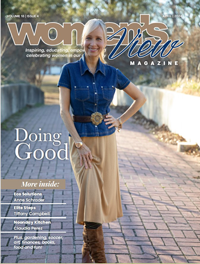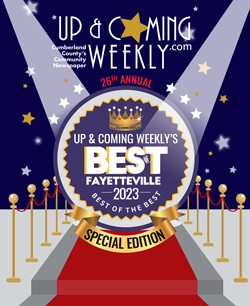A piece of the puzzle that makes up Fayetteville’s rich and varied history will be coming home July 22 through July 26 when perhaps the area’s most important historical artifact, the Liberty Point Resolves, goes on display at the Fayetteville Area Transportation Museum. {mosimage}The document — originally called the Cumberland Association, though popularly referred to as the Liberty Point Resolves — was written on June 20, 1775, and it declared the county’s independence from Great Britain as the colonies prepared for what became the American Revolution. The text of the document was copied by the locally famous Fayetteville patriot Robert Rowan while attending a meeting in Wilmington; he was the first of 55 men to sign this declaration of freedom, all of whom added their John Hancock around or near Liberty Point — the exact spot is unknown.
The Resolves were penned a little more than a year before the Declaration of Independence; patriots in Charlotte wrote their own declaration about a month before the Resolves, but the Fayetteville document remains the oldest surviving declaration in North Carolina.
After the war, the Resolves stayed with Rowan until his death when the document passed into the hands of Rowan’s stepson, William Berry Grove. After changing hands a few more times, the document eventually became housed in the Southern Historical Collection at the University of North Carolina at Chapel Hill.
Bruce Dawes, Fayetteville’s historic properties manager, will drive to Chapel Hill and pick up the Resolves on July 21. It will be displayed at the Fayetteville Area Transportation Museum inside a special case on loan from the Cumberland County Public Library designed to protect the fragile document. The display is being cosponsored by the Fayetteville Area Convention and Visitor’s Bureau.
Dawes calls the document a “priceless” part of the area’s history. He says the Resolves and Rowan are intertwined in the accounts of that era — an era which saw Fayetteville become a vital cog in the struggle for independence.
“Rowan, who has a street named after him in Fayetteville, is one of the great historical figures in our local history,” said Rowan. “Rowan was a member of the Sons of Liberty as early as 1710. He held a number of positions; even though he didn’t distinguish himself on the battlefield he was important in the logistics of the war, helping supply the army with clothing and other supplies.
“During the war there was a salt supply near Cross Creek,” added Dawes. “Rowan earned the rank of colonel when he and a small band of volunteers fended off a mob of people who wanted to take the salt.”
While Dawes said Rowan is remembered as one of the area’s great patriots, not everyone who signed the Resolves remained true to the cause. Dawes said two signers “switched sides” and joined the British cause after signing the declaration.
“The revolution was very complex,” said Dawes. “At the time, it was a war against an established country that many here had strong ties to.”
One of the signers who didn’t switch sides was William Herin; Herin’s great-great-great granddaughter, Fayetteville’s Gail Wilson, will be on hand at the opening ceremonies of the document’s presentation to help preserve the historical ties to her kin and the Resolves.
“We’re very proud to be associated with it (the Resolves),” said Wilson. “We’re very excited, especially my two sons, who have told their friends all about it.”
The grand opening ceremonies were held on Tuesday, July 22, at the Fayetteville Area Transportation Museum. Among those in attendance will be the local Marquis de Lafayette chapter of the Sons of the American Revolution, the Liberty Point Daughters of the Revolution and the Fayetteville Independent Light Infantry.
Included in the wording of the Resolves is the following, powerful statement: “We therefore the subscribers of Cumberland County, holding ourselves bound by that most sacred of all obligations, that duty of all good citizens towards an injured country, and thoroughly convinced that under our distressed circumstances, we shall be justified before God and man in resisting force by force, do unite ourselves under every tie of religion and honour and associate as a band in her defense against every foe ...”
{mosimage}While the Resolves mention the need for force to wrest the country from the hands of the British, force shouldn’t pull you to the display at the museum — a sense of duty to our military heritage past and present should be enough.
“This document represents Fayetteville’s history, especially the military aspect,” said Dawes. “Even before Fort Bragg, Fayetteville had chapter after chapter of involvement in helping protect this country. We are defined by the military. It is a special and important document for past and active members of the military, as well as their families, and for everyone in Fayetteville. This is a chance to see something they might never get another opportunity to see.”
After 230 Years, Document Still Shows ‘Resolve’
- Details

 How to resolve AdBlock issue?
How to resolve AdBlock issue? 









